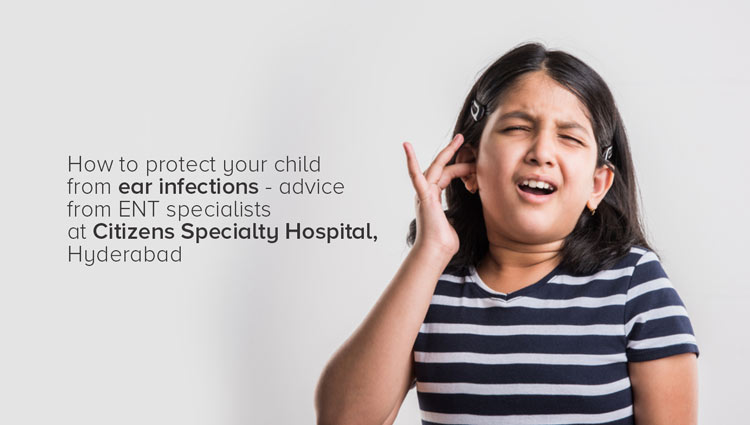
Ear infections can be a real pain, no matter how old you are. But for children, they can be more than just painful - they can cause hearing issues, learning problems, and speech delays. That's why it's so important for parents to protect their little ones from ear infections. Fortunately, we've got you covered with advice from ENT specialists at Citizens Specialty Hospital in Hyderabad. Learn how to protect your child from this common childhood ailment.
Avoid exposure to cigarette smoke: Second-hand smoke can increase your child's risk of developing allergies. So, if you smoke, try to quit, or at least don't smoke around your child. And if you're visiting someone who smokes, do your best to keep your child away from the smoke.
Wash hands often: Many ear infections start with a cold or other respiratory illness. To avoid spreading germs that can cause these illnesses, encourage your child to wash their hands regularly and model good hand-washing habits yourself.
Breastfeed if possible: Breast milk can help boost your child's immune system, making it more resistant to infections of all kinds, including ear infections. Try to breastfeed your baby for at least the first six months of life.
Address allergy issues: Allergies can contribute to chronic ear infections. So if your child has allergies, work with your doctor to develop a treatment plan that reduces symptoms and inflammation.
Conclusion: Ear infections can be a real headache for children and parents alike. But by taking a few simple steps, you can help reduce your child's risk of developing them. Avoiding exposure to cigarette smoke, keeping your child's vaccinations up to date, washing hands regularly, breastfeeding if possible, and addressing allergy issues are all effective strategies for protecting your child's ears. If your child develops an ear infection, Call us at 04067191919 or Schedule a Consultation via our website ENT (citizenshospitals.com). Seek medical treatment promptly to help avoid complications and ensure a speedy recovery. Remember that prevention is always the best policy for protecting your child's health.